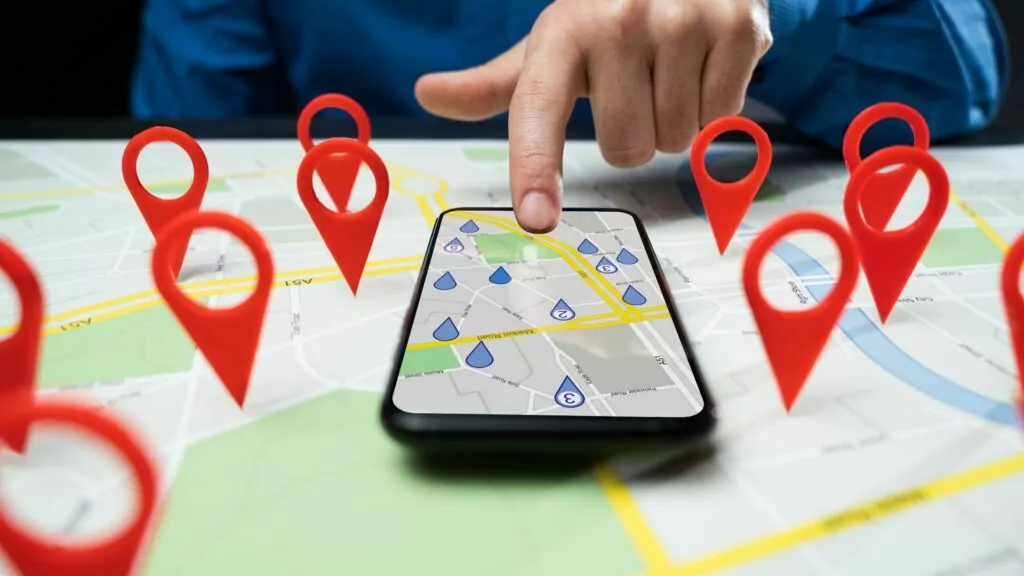
Location-Based Marketing (LBM) has become an essential strategy for businesses in today’s digital world. It allows companies to target relevant audiences by delivering personalized content and promotions based on their geographical location. As technology advances, the future trends in location-based marketing continue to evolve, offering even more opportunities for businesses to connect with their target audiences. In this article, we’ll explore these trends and discuss their potential impact on businesses.
Interactive technologies, such as Augmented Reality (AR) and Virtual Reality (VR), have revolutionized location-based marketing. By combining the digital realm with the physical world, these technologies offer immersive experiences that engage consumers in new and exciting ways. For example, AR can be used to overlay digital content onto a physical environment, allowing customers to visualize products in their own homes before making a purchase. In contrast, VR can transport users to a virtual environment, giving them a more in-depth experience of a brand’s offerings. These technologies are proving to be vital tools for businesses in content marketing strategies.
Event-Based Marketing (EBM) is a powerful technique that uses location-based marketing to engage audiences at specific events, such as concerts, sports matches, and conferences. By delivering targeted promotions and offers to event attendees, businesses can generate more leads, increase brand awareness, and drive sales. One example of event-based marketing is a restaurant that offers discounts to nearby concert attendees, encouraging them to visit before or after the show. The importance of EBM in social marketing can’t be understated, as it helps create a strong connection between brands and their audiences.
One of the most significant future trends in location-based marketing is the use of Artificial Intelligence (AI) to deliver highly personalized content. By analyzing vast amounts of data on consumer behavior, preferences, and location, AI can identify patterns that help businesses create more targeted and relevant marketing campaigns. This level of personalization results in an improved customer experience, leading to higher conversion rates and increased customer loyalty.
As wearable devices, such as smartwatches and fitness trackers, become more popular, they offer new opportunities for location-based marketing. These devices collect valuable data on users’ movements, habits, and preferences, providing businesses with more accurate and detailed information to tailor their marketing strategies. By integrating wearable devices into location-based marketing, companies can deliver highly targeted content and promotions directly to consumers’ wrists, increasing engagement and driving sales.
Beacon technology is another emerging trend in location-based marketing. These small, wireless devices use Bluetooth technology to transmit signals to nearby smartphones and tablets. When a customer enters a store or a specific area with a beacon, they receive targeted promotions and offers directly to their device. This technology allows businesses to engage customers in a highly personalized and contextually relevant way, resulting in a more seamless shopping experience.
The gig economy plays a crucial role in location-based marketing. As gig workers, such as rideshare drivers and delivery couriers, become more prevalent, they provide a valuable resource for businesses to reach their target audiences. For example, a restaurant could partner with a delivery service to offer exclusive promotions to customers within a specific area, or a rideshare company could display targeted advertisements to passengers during their ride. This type of business listing strategy is becoming increasingly popular as businesses look to capitalize on the growing gig economy.
Geo-fencing is a location-based marketing technique that uses GPS technology to create a virtual boundary around a specific geographical area. When a consumer enters this area, they receive targeted content and promotions directly to their mobile device. This technology allows businesses to deliver highly relevant marketing campaigns, based on a user’s proximity to their physical location. Geo-fencing is particularly useful for brick-and-mortar stores looking to drive foot traffic and increase sales.
As location-based marketing becomes more advanced, privacy concerns are becoming increasingly important. Consumers are growing more aware of the amount of personal data being collected and shared by businesses, which has led to a demand for greater transparency in marketing practices. Businesses need to find a balance between delivering personalized marketing experiences and respecting their customers’ privacy, ensuring that they are compliant with data protection regulations such as GDPR.
The future trends in location-based marketing discussed in this article highlight the growing importance of personalization, interactivity, and technological innovation in marketing strategies. Businesses that adapt to these trends and implement effective location-based marketing campaigns will be better positioned to connect with their target audiences, drive sales, and increase customer loyalty. With marketing constantly evolving, it is crucial for businesses to stay informed on the latest digital marketing trends and adapt their strategies accordingly.
Q: What is Location-Based marketing?
A: Location-Based Marketing (LBM) is a marketing strategy that targets audiences based on their geographical location, delivering personalized content and promotions that are relevant to their needs and preferences.
Q: How can I use Location-Based Marketing for my business?
A: You can use location-based marketing in various ways, such as targeted advertising, geo-fencing, event-based marketing, and integrating wearable devices or beacon technology into your marketing campaigns.
Q: What are some key benefits of Location-Based Marketing?
A: Location-Based Marketing offers several benefits, including increased customer engagement, higher conversion rates, improved customer loyalty, more targeted marketing campaigns, and a better overall customer experience.
Q: Is it possible to use Location-Based Marketing without compromising customer privacy?
A: Yes, it is possible to use location-based marketing while still respecting customer privacy. Businesses should be transparent about their data collection practices, adhere to relevant data protection regulations, and provide users with control over their personal data.
You must be logged in to post a comment.
